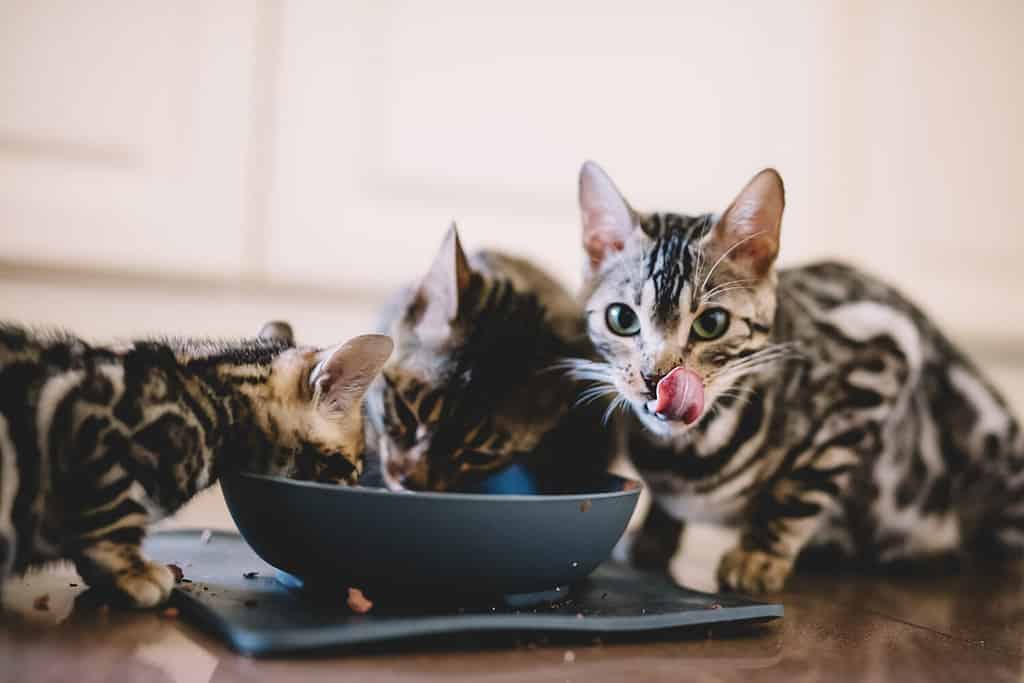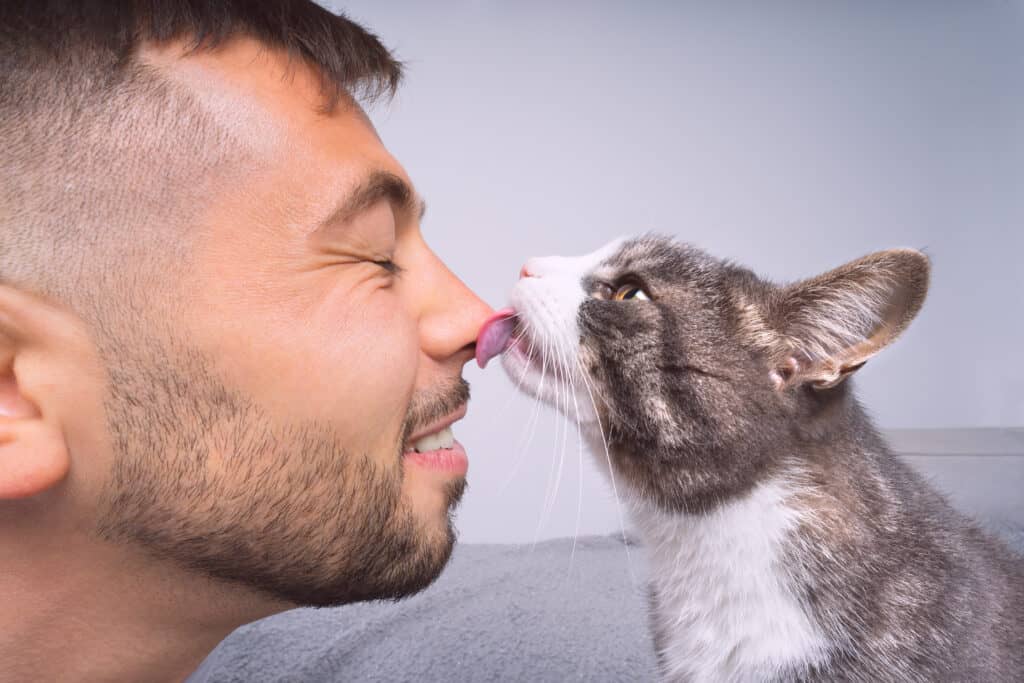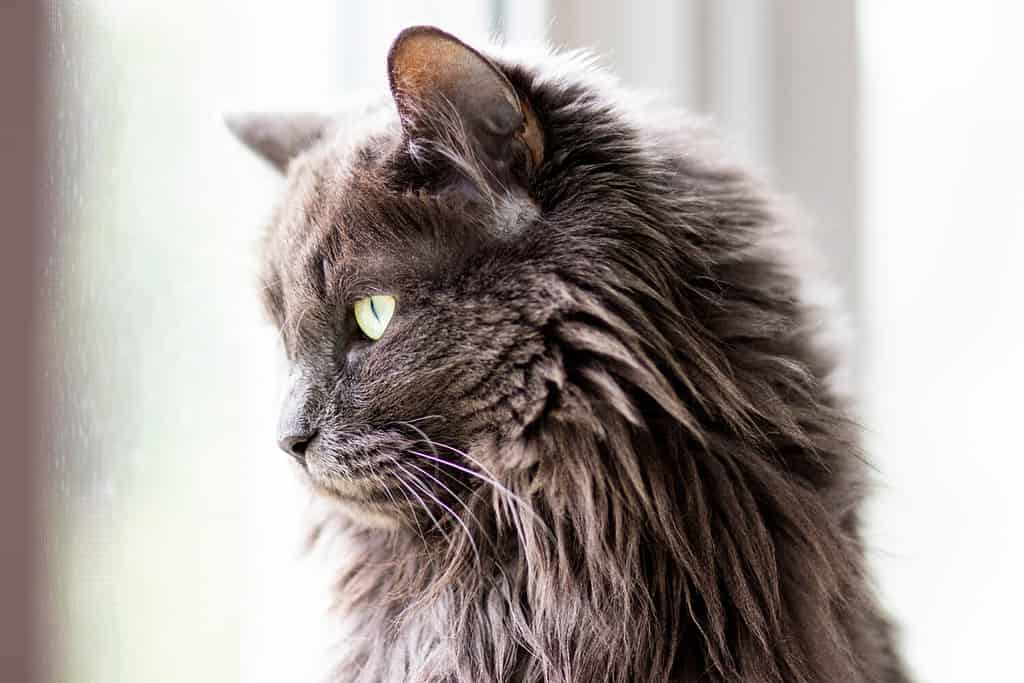My cats love to wake me up in the morning screaming for breakfast, and are always underfoot again around dinner time. Yours are likely similar, since most cats thrive on routine. It begs the question, do cats have a sense of time?
While we don’t have many concrete studies on the subject, we do know that cats can feel time passing. They likely don’t often think about the past or future, but we know they have a long-term memory. They can remember people and animals they know, where their food bowl and litter box are located, and more.
In this article, we’ll talk about all we currently know about whether cats understand and have a sense of time.

Cats have a sense of time, which is how they know when it’s time to eat, play, or greet you as you return home from work.
©PHOTOCREO Michal Bednarek/Shutterstock.com
Can Cats Tell Time?
Cats have a sense of time, but they cannot tell time.
The difference is that cats cannot read a clock or calendar to know what time or season it is. They don’t know the days of the week. But, they know when they’ve been left alone for a long time and they know when dinnertime is!
Like most animals, they likely judge time based on the sun and the day/night cycle. They also likely use their routines as markers. For instance, if you play with your cat before dinner, they’ll know to expect dinner after playtime.
Cats actually have an incredible sense of time, considering many humans are lost without a clock. Their estimates seem to be much closer than mine, anyway! I know that sometimes when my cats tell me it’s dinnertime, I look at the clock and think where has the day gone? Sometimes I think they must be wrong, but they never are!
How Important is a Cat’s Routine?
Sticking to a routine with your cat is incredibly important. Though not all of us have consistent work or sleep schedules, keeping your cat’s routine as similar as possible will help them to thrive in your home.
Cats rely on us for everything, so their schedules are important. After all, can you imagine not knowing when your next meal was coming?
Cat routines should consist of regular playtimes and mealtimes. Cats should have 2-3 play sessions a day, each lasting 10-15 minutes. This provides exercise and mental enrichment.
The best time to play with your cat is before a meal so that they can mimic “hunting” their prey (aka toys) and then eat right after. It’s also good to play with them before you leave home or before bedtime to get that energy out!
Cats should eat two or more meals daily rather than one giant meal. Their stomachs are small and big meals increase their risk of health issues like bloat, vomiting after meals, and even dehydration. Cats fed more frequently tend to drink more water!
If possible, also stick to a routine when it comes to work and errands. Cats tend to do better left alone when they can predict the time you’ll be home.

Cats develop relationships with their humans and do miss us when we’re away!
©iStock.com/Daria Kulkova
Do Cats Know How Long You’ve Been Gone?
Cats might not know how many hours you leave them for, but they do know when you’re away. They can get lonely, bored, and anxious.
There is also a study that shows that smaller animals with higher metabolisms may process time more slowly. This means that cats may perceive time differently than people. This can make being alone harder on them since it feels like longer than it does to us.
Some cats have separation anxiety and really struggle being left alone at all. Most cats do okay alone for short periods, but they shouldn’t regularly be left for more than twelve hours at a time–and never for more than 24 hours without someone checking in.
People like to think of cats as independent animals, but they’re a domesticated species. They depend on humans for everything, and we owe them proper care.
If you’re going away on a trip, you’ll need a pet sitter to drop in at least twice daily. For longer stays, consider having someone stay in your home to spend ample time with them or rehoming your cat to someone who spends more time at home.

Cats rely heavily on their routines, and things like mealtimes should be kept as similar as possible day to day.
©Allison McAdams/Shutterstock.com
Long-Term Memory in Cats
Cats do seem to have long-term memory, as evidenced by their remembering things like the location of their food bowl, tricks they’ve been taught, and what time you come home from work.
They also seem to remember people or animals they met long ago. Cats have been known to grieve their past owners.
I’ve seen several examples of this first-hand, once when I adopted a cat whose owner passed away. He was depressed for about a year and didn’t want to do more than eat, drink, potty, and stare out the window. Eventually, he came around, but it took a lot of time and patience to get him used to his new home.
Of course, we can’t know exactly what’s going on in a cat’s mind, so we always have to make our best guess based on their actions. But it takes little more than watching a lost cat be reunited with their owner to know that they remembered them!
I hope this article has helped you learn more about cats and what we know about their sense of time. We’ll likely learn more as new studies come out on this topic. For now, we can confirm that cats do feel time pass and have long-term memories. They also likely live in the present rather than thinking too much about the past or future.
Thank you for reading! Have some feedback for us? Contact the AZ Animals editorial team.








